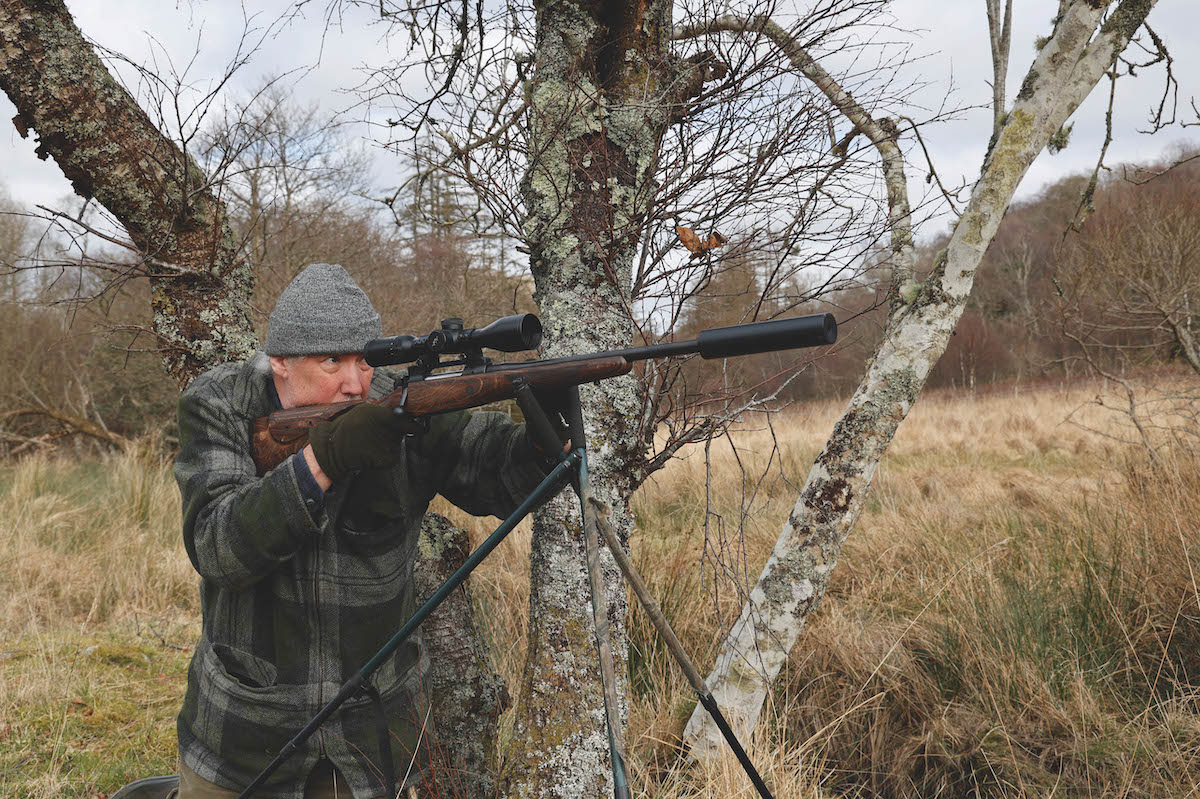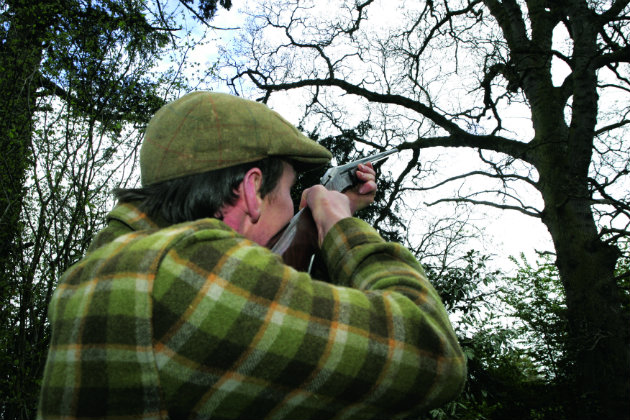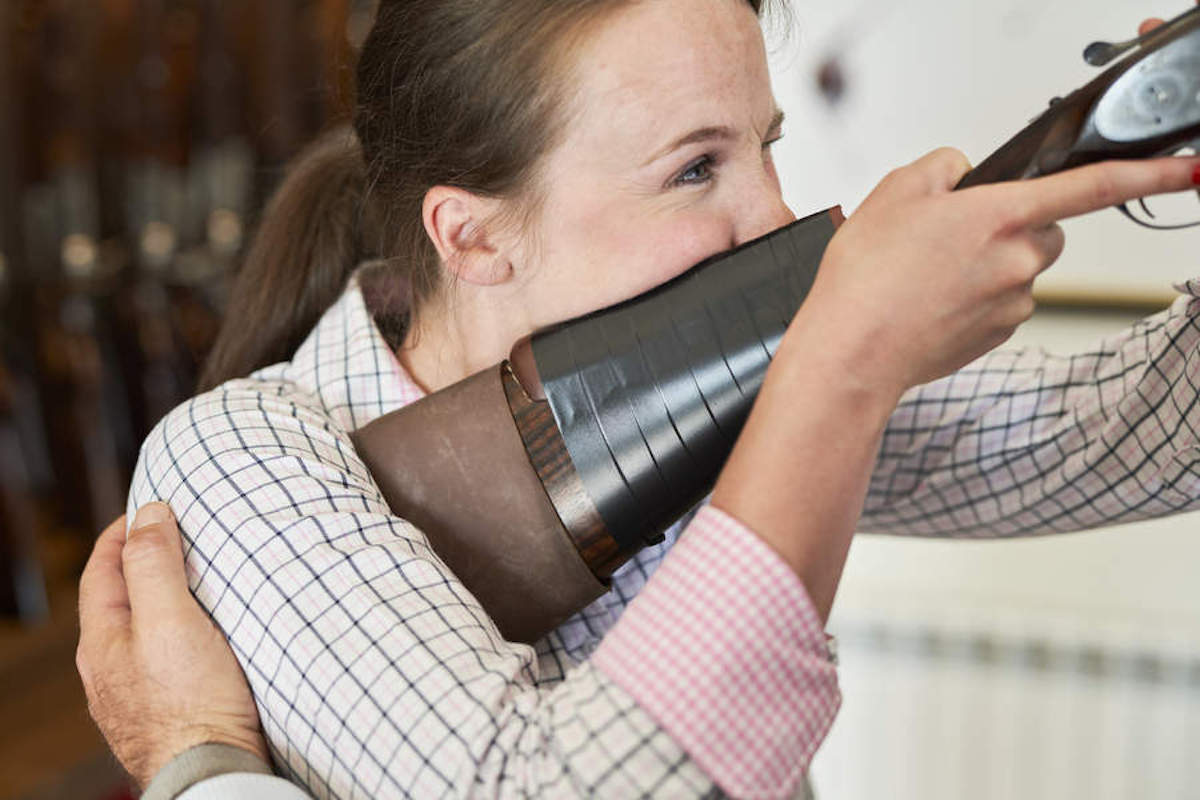Why gamekeeping is a calling
With long hours for little financial reward, gamekeeping is a calling and those who choose it must be fully committed to the way of life, says David Whitby

Working conditions for the keeper were very different in the 1950s and 1960s
There was a time when the vast majority of keepers and stalkers owed their career to an accident of birth. I remember reading something years ago stating that, much like nuns, both nurses and gamekeepers must never be attracted to their chosen profession by high financial reward; gamekeeping is a calling or passion, ensuring that only those who are fully committed are interested.
I would suggest that were this true, it is one of the few things that the latter cohort has in common with nuns. Keepers work extremely long hours, seven days a week; with today’s employment laws it is more expected than insisted. A friend of mine recalls his interview with a land agent for the position of beatkeeper, some 50 years ago. “Your contract states six and a half days a week, but I tell you now that if you are not prepared to work seven then this meeting is over,” was the greeting as he stood in front of the man before being allowed to sit. He gladly agreed and felt fortunate to get the position.
In the many instances where a son had followed in his father’ footsteps, training would have started years before. Traps, snares, wild bird management and rearing would have been part of his schooling from an early age. Ferreting, shooting and terrier work were essential activities that moulded a young boy into an underkeeper, then a beatkeeper. (Read Vinnie Jones – the best times of my life have been spent as a gamekeeper.)
Strict regime
The underkeeper was the apprentice who fed the keeper’s dogs, cleaned his ferrets, boots, guns and honed his trade under a strict regime. On the larger shoots both senior beatkeepers and, of course, the headkeeper would often have an underkeeper.
In the days of self- and traditional training, there was little legislation to worry about and where it did exist, it was largely ignored. The gamekeeper was the powerful constable of the countryside who operated with impunity and was not to be trifled with. He was as likely to dish out a good hiding as involve the police.
His job was an all-encompassing way of life and, to a certain extent, it still is. Many years ago, I was placing a student keeper on an estate in Norfolk. The owner insisted he would never employ a keeper who was a keen gardener, entered field trials — or wore glasses. “They should be out on their beat from dawn to dusk, no time for digging or dog training and perfect eyesight is essential.”
Though we still find a good number of keepers and stalkers have followed in family footsteps, as various colleges started gamekeeping courses it opened a pathway for both young men and young women into the industry. Today’s gamekeeper must be very different to those of yesteryear; skill sets, legislation, public awareness, safety and acceptability have all changed.

For many, gamekeeping was an accident of birth as they followed their father’s footsteps
Gamekeeping is a calling
Like many professions, gamekeeping has to embrace a world of very different attitudes and restrictions. Keepers face new and constantly changing legislation and codes of good practice that must be adhered to if shooting is to survive. Safety at work has become an essential. I wonder how our predecessors would have coped with risk assessments and a host of other responsibilities designed to protect not only us, but also our employers. Onerous and perhaps over the top some requirements may seem, but how else may we ensure that youngsters have received the correct training in ATV driving, chainsaw protocols, rodenticide use and a host of other activities that are potentially dangerous to the users, to wildlife or other people in the vicinity?
As a small boy I saw strychnine being applied to a bait by penknife, which was wiped clean and later used to peel an apple or paunch a rabbit. Even if this were legal, it is hardly best practice.
Advanced courses
There are several colleges offering gamekeeper or game-related courses. Most include the word ‘conservation’ in their prospectus and quite right too. I have only been involved with two such establishments and Sparsholt stands out by a long mile as being the best. It has been some 40 years since I taught there and I have watched from a distance as it advanced from strength to strength. The keeper’s course at Sparsholt was established in the early 1970s and, I believe, was one of if not the first such course to run.
Even though I enjoyed my time lecturing immensely, it was no substitute for working as a keeper or stalker and once again the woods and fields started to call. During that brief period I met some wonderful young trainee keepers, many of whom went on to good jobs and are still employed in the career that they love. Some I ended up sending as far afield as the US and I note that on the Sparsholt web page, they have gamekeepers working on every continent except Antarctica. The college’s reputation speaks for itself. I remember that one of the problems facing such courses was finding staff not only with sufficient experience in the field, but also an academic background, who could also teach. The best keepers would perhaps not make the best teachers, even in the unlikely event that they could be prised away from their woods and fields. Personally, I see no problem; the most important aspect of any course is to get the delivery right — the experience will come when the student starts work as an underkeeper.
Mishaps
Ours is a career fraught with potential mishaps — shotguns, rifles, traps, ATVs, working alone, poachers, Lyme or Weil’s disease, chainsaws, brush cutters, and a host of other possible problem-causing activities. Then there is the ever-changing legislation and hostility towards us and not only from anti-fieldsports people; the general public increasingly see it as their right to wander where they want to with an unruly dog.
Increasingly, today’s gamekeeper has to be a responsible diplomat, fully aware of the changing laws, best practices and safe working regulations. These, along with many other aspects including the natural history of game and other wildlife, are the essentials that colleges can instil in tomorrow’s gamekeepers. There will be a day — perhaps in the none too distant future — when not only keepers but all who shoot living quarry must have some form of qualification to work or shoot.
I remember my great friend and mentor, the late Arnold Lambert, once saying something along the lines of “the keepers of today can’t do and don’t know what we did and knew, but then we could not do and don’t know what they do either”. It was his subtle way of saying that times have changed and that the keepers of yesteryear would be as lost on shoots today as today’s keepers would have been back then. With the help of good courses, future keepers will embrace changes and hopefully the sport of game shooting will see the need for it.








